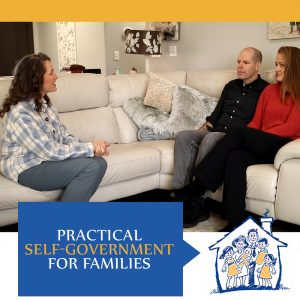Confidence Building Activities For Children
Question
“Nicholeen, my children all seem to have a lack of confidence. They don’t like to try new things, and are getting more and more lazy because of it. What can I do to help them build confidence?”
Answer
You are not alone. Low self esteem is a problem for many children now days. In fact, even though a large emphasis has been put on building confidence in children for many years, there seems to be more low self esteem problems than in years past. As time goes by, the number of parents reporting children with low self esteem to me has increased. Many of my foster children came with “low self esteem” written on their charts. This is what I have found that works for building confidence.
What is Self-Esteem?
People are generally judgmental. We judge others, even though we shouldn’t, and we judge ourselves. Our judgments of others influence how much worth they have in our eyes, and our judgments of ourselves either increase or diminish how we see and value ourselves.
For some reason our society is obsessed with estimating individual worth. Self-esteem is the feeling a person has when they have estimated that they have value or worth to themselves and in the eyes of society. This value is generally determined in one of two ways. Most people determined their individual worth based on what they are capable of doing and how accepted they are by other people; especially peers.
Myths About Building Self-Esteem
Many people believe that creating more fun in the life of person, or having more pleasurable activities will increase self-esteem and happiness. This is a myth. Temporary pleasure does not change how a person sees themselves.
It is also commonly believed that individual worth is determined by how others see you. This is a myth that people with low self confidence buy into. We are all born with worth and purpose in life. Understanding God’s love for us and purpose for us gives us worth no matter what others think of us or how we perceive people value us.
It is common to think that talking about how worthless you feel will help the situation. While open discussions are always good, and parents should get involved in helping children see things differently, having regular venting sessions often enables more than rehabilitates. People with self-esteem problems don’t need one more excuse and they don’t need any more time focusing on what went wrong. They need optimism, direction, and new communication skills.
Confidence Building Activities
Since a large percentage of the troubled foster youth who visited my home struggled with low self-esteem, we thought carefully about the best way to help them build confidence, and put activities and structure into our family culture to assist us in this effort. These are the additions to our family culture that led the youth toward confidence.
-
Praise: So often parents just talk about what children do bad. By talking about the good things, the youth becomes more optimistic. Don’t worry if they don’t want to see the good at first. Just keep praising.
-
Pre-teaching: People start to feel worthless when they are worried about failing or about trying something they haven’t done before. So, I try to pre-teach about what to expect from upcoming situations as often as possible. This decreases anxiety and increases confidence by being better prepared for situations.
-
Family Meetings: During family meetings all family members have a voice and the opportunity to help make family rules. This is very empowering and shows the youth that what they think is valuable to the family group. They also get the opportunity to value other people’s ideas in this setting, which is really good for fighting selfishness. Often times people who don’t feel they are valuable are in a very selfish state of mind. (They wouldn’t see it that way, but it is easy to see that they are just thinking about themselves and how everything relates to them.)
-
Family Service Work: Doing service projects for others as a family helps the youth see that they have a purpose and a capacity to bring joy to another person’s life. Working as a family also unifies the hearts of the family as they serve others together. Service projects are great for combating selfishness as well.
-
Problem Solving SODAS: When a child has low self confidence they need more help making decisions. They are afraid of failure. This why they generally don’t want to try new things. So, as part of a pre-teaching moment doing a SODAS problem solving exercise would be valuable. You can find instruction on how to do SODAS in chapter 20 of Parenting A House United.
-
Family Work and Chores: There is possibly nothing more motivating and validating for a youth than knowing how to work well. Especially when youth are saying they don’t want to work they need to be working. Work is the antidote for a sick character. When the two youth from the BBC show came to my home they learned to do work like harvesting, weeding, and cleaning bathrooms. When they learned these things they got so excited that they wanted to go home and show their families what they could do. Both youth were age seventeen. Create a home culture where you work as a family, and allow children to do chores often throughout daily life. They will see themselves as knowledgeable and capable as you allow them to experiences work.
-
Four Basic Skills: All the steps in each of the four basic skills will teach and encourage self confidence. Looking in eyes is a basic skill that teaches honest, deep communication, checking back from tasks shows the youth that they did it. They accomplished something. Disagreeing appropriately teaches youth to share their thoughts and to discuss openly and calmly with adults, and accepting consequences teaches youth that they can conquer themselves.
-
Weekly Mentor Sessions: Having a time to talk about goals and progress on goals each week is inspiring for youth. During these talks parents can arrange for special parent dates which strengthen relationships, and talk about useful topics such as what self-government means and how it can increase happiness and freedom for the youth. Take time to talk to your children, but don’t focus on the negative feelings of the week. Focus instead on where they are going and what they want to accomplish. Then make a plan to help them achieve.
-
Consequences: Positive and negative consequences actually help improve self confidence. When a child is regularly corrected by parents they don’t take mistakes so seriously anymore, and they see the positive consequences in life too.
-
Adult Responsibilities: Youth like to learn adult skills and take on responsibilities. If we don’t allow them to chop the vegetables for dinner and mow the lawn then we are denying them the experiences they need to grow up confidently. Think how much anxiety small children who can’t do anything for themselves have. They worry and whine over every small thing. Then, as soon as they can walk or dress themselves their attitude changes. They feel accomplished and desire more responsibilities. Older children are no different. They want to keep learning and keep growing. If they don’t get lots of responsibilities like taking care of pets, making meals, doing laundry etc. they will get more and more anxiety about growing up. They just won’t feel ready.
-
Reconnect With Family By Disconnecting From Media and Friends More Often: For some reason society seems to think that when children are having lots of media time and friend them they are happier. This is not true. They may fuss less and stay out of their parents’ way, but they are not more fulfilled. And, a person can’t find happiness unless they are living their purpose. Media is partially to blame for the low self-esteem epidemic that our society is facing. Children are set aside in front of screens and sent to social activities more often than they are with their families. Families offer true, honest identity and acceptance. They offer safety, connection and learning. If a child is focusing on media or too much social time they often feel detached, unloved, disregarded, lost, dependent, and insecure. Do your children a favor, turn off the media more often and read and play as a family. As you read to your children you will teach them cool stuff that no one else knows. This also increases self confidence.
These confidence building activities and adjustments in family structure will strengthen your family, your home culture and the hearts of your children. If you want to really help your children love life and live confidently and happily put your focus on making cultural changes at home, not on pulling a person along toward happiness. No amount of pulling or coaxing ever changed a heart to be able to trust its environment and the people there. Only security in family life and maturity, responsibilities and intelligence free people and allow them to see the world with new eyes while giving them the skills they need to capably progress toward adulthood.
All the topics in this article are discussed in detail in the TSG Implementation Course






